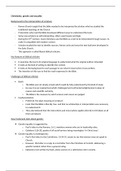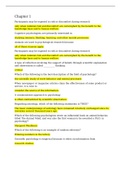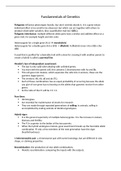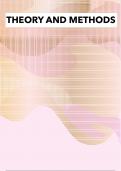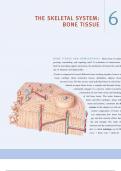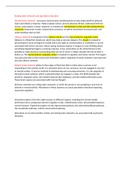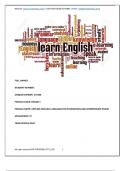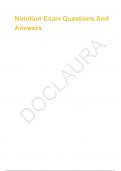Christianity, gender and sexuality
Background to the interpretation of scripture
- Roman Church taught that the bible needed to be interpreted by scholars who has studied the
traditional teachings of the Church.
- Protestants who read the Bible developed different ways to understand the texts.
- Some saw scripture as self-interpreting, others used reason and logic.
- During the 19th Century, many Christians saw the Bible as a text to be interpreted through reason, to
make it compatible with modern science.
- Scholars studied the text to identify sources, literary units and ways the text had been developed in
the Early Church.
- This approach is called liberal biblical criticism.
Key features of biblical criticism
It examines the text in its original language to understand what the original authors intended.
It looks at the kind of writing to identify the context.
It looks at the background to each passage to see what it meant when it was written.
The intention of this was to find the truth expressed in the Bible.
Challenges of biblical criticism
Barth
o The Bible was not simply a book which could be fully understood by this kind of study.
o He saw it as an inspired text which challenged and confronted enlightenment values of
reason and scientific certainty.
o The Bible is the measure by which science and reason are judged.
Fundamentalism
o Preferred ‘the plain meaning of scripture’.
o Insist that the Bible is literally true, and that no scholarship or interpretation was necessary
to understand it.
o They also believed that the instructions and moral advice applies directly to Christians at all
times and places.
New Testament texts about gender
Gender equality is suggested by:
o Paul’s letter to the Romans, 16:1, mentions women who are in leadership roles.
o Galatians 3:26-28, speaks of all social barriers being meaningless ‘in Christ Jesus’.
Gender equality is challenged by:
o Paul’s first letter to the Corinthians, 14:34-35, seems to say that women may not speak in
Church.
o However, this letter is a reply to a lost letter from the Christians of Corinth, addressing a
specific incident rather than a general ruling.
o Ephesians (not written by Paul), places women in a submissive role in society.
Background to the interpretation of scripture
- Roman Church taught that the bible needed to be interpreted by scholars who has studied the
traditional teachings of the Church.
- Protestants who read the Bible developed different ways to understand the texts.
- Some saw scripture as self-interpreting, others used reason and logic.
- During the 19th Century, many Christians saw the Bible as a text to be interpreted through reason, to
make it compatible with modern science.
- Scholars studied the text to identify sources, literary units and ways the text had been developed in
the Early Church.
- This approach is called liberal biblical criticism.
Key features of biblical criticism
It examines the text in its original language to understand what the original authors intended.
It looks at the kind of writing to identify the context.
It looks at the background to each passage to see what it meant when it was written.
The intention of this was to find the truth expressed in the Bible.
Challenges of biblical criticism
Barth
o The Bible was not simply a book which could be fully understood by this kind of study.
o He saw it as an inspired text which challenged and confronted enlightenment values of
reason and scientific certainty.
o The Bible is the measure by which science and reason are judged.
Fundamentalism
o Preferred ‘the plain meaning of scripture’.
o Insist that the Bible is literally true, and that no scholarship or interpretation was necessary
to understand it.
o They also believed that the instructions and moral advice applies directly to Christians at all
times and places.
New Testament texts about gender
Gender equality is suggested by:
o Paul’s letter to the Romans, 16:1, mentions women who are in leadership roles.
o Galatians 3:26-28, speaks of all social barriers being meaningless ‘in Christ Jesus’.
Gender equality is challenged by:
o Paul’s first letter to the Corinthians, 14:34-35, seems to say that women may not speak in
Church.
o However, this letter is a reply to a lost letter from the Christians of Corinth, addressing a
specific incident rather than a general ruling.
o Ephesians (not written by Paul), places women in a submissive role in society.


